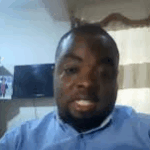General
Nkwanta SHS closure: IES calls on the government to provide online platforms for final-year students
The recent closure of Nkwanta Senior High School, following deadly tribal violence, has prompted an appeal from Dr Peter Anti, Executive Director of the Institute of Education Studies, urging the government to urgently provide online learning platforms to support the school’s final-year students....
MyJoyOnline
published: Jun 30, 2025


The recent closure of Nkwanta Senior High School, following deadly tribal violence, has prompted an appeal from Dr Peter Anti, Executive Director of the Institute of Education Studies, urging the government to urgently provide online learning platforms to support the school’s final-year students.
On Friday, 27 June, the Ghana Education Service (GES) ordered the immediate closure of Nkwanta SHS in the Oti Region after a tragic escalation of violence left two female students wounded by gunshots on 26 June and a male student fatally struck by a stray bullet during mock examinations the following day.
Speaking on JoyNews’ News Desk programme, Dr Anti highlighted the immense challenges these final-year students face: “Although the school is closed, these students are still expected to sit their WASSCE exams alongside peers across the country. This reality underscores a critical truth in times of emergency: providing uninterrupted education is absolutely essential.”
Dr Anti expressed concern over the lack of a strong contingency plan.
“If we had a robust and responsive policy framework, we would have immediately activated online platforms to offer these students quality education remotely. Sadly, we do not have such systems in place, and it is the students who ultimately suffer the consequences.”
He urged the Ministry of Education to act without delay: “At this critical juncture, the Ministry, alongside the Education TV channel and the ‘cendlos’ initiative, must urgently develop accessible online platforms. These would enable final-year students at Nkwanta SHS to stay connected with their teachers and continue their exam preparations, despite the school’s closure.”
Dr Anti further pointed out that the crisis in Nkwanta reflects a broader problem affecting other conflict-prone areas.
“This is not an isolated issue. In places like Bawku, students have endured years of educational disruption due to persistent conflicts. It is high time we build resilient systems that activate whenever emergencies arise so children’s education never has to be put on hold.”
He concluded with a powerful appeal, stressing the urgency of the situation.
“With less than a month to final exams, the government’s swift action is not just necessary; it is urgent. We owe these students the opportunity to learn, prepare, and succeed. Leaving them stranded at home, cut off from their education, is simply unacceptable.”
As Ghana confronts these challenges, the call to adopt innovative education solutions has never been more pressing. The future of countless young learners hangs in the balance — and the clock is ticking.
Read More